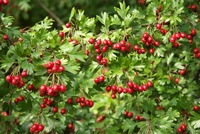
Pumpkins - not just for Halloween!
Pumpkins are so much more than just a Halloween decoration or a Thanksgiving pie filling, but it is time to rethink this plump, nutritious orange plant. Pumpkins are an extremely nutrient-dense food, meaning it is full of vitamins and minerals but low in calories.
Fast facts on pumpkin
The potassium contained within pumpkins can have a positive effect on blood pressure
The antioxidants and vitamins contained within pumpkins could prevent degenerative damage to the eyes
Canned pumpkin pie mix typically contains added sugars and syrups
Uncut pumpkins should be stored in a cool, dark place for up to 2 months
Pumpkin puree or canned pumpkin can be used as a replacement for butter or oil in baking recipes
Possible health benefits of consuming pumpkin
Consuming fruits and vegetables of all kinds has long been associated with a reduced risk of many lifestyle-related health conditions. Many studies have suggested that increasing consumption of plant foods like pumpkin decreases the risk of obesity and overall mortality. It can also help stave off diabetes, heart disease, and promote a healthy complexion and hair, increased energy, and overall lower weight.
Pumpkin is one of the best-known sources of beta-carotene, a powerful antioxidant that gives orange vegetables and fruits their vibrant colour. Beta-carotene is converted to vitamin A in the body once it is eaten.
Consuming foods rich in beta-carotene may reduce the risk of developing certain types of cancer, offer protection against asthma and heart disease, and delay aging and body degeneration.
There are many creative ways pumpkin can be incorporated into your diet, including desserts, soups, salads, and preserves.
Eating pumpkin is good for the heart. The fibre, potassium, and vitamin C content in pumpkin all support heart health.
Consuming adequate potassium is almost as important as decreasing sodium intake for the treatment of hypertension (high-blood pressure). Other foods that are high in potassium include cantaloupe, avocado, pineapple, tomatoes, oranges, spinach, and bananas.
Increased potassium intake is also associated with a reduced risk of stroke, protection against loss of muscle mass, preservation of bone mineral density, and reduction in the formation of kidney stones.
Cancer research has demonstrated a positive relationship between a diet rich in beta-carotene and a reduction in the occurrence of prostate cancer; this is according to a study conducted by the Harvard School of Public Health's Department of Nutrition.
Beta-carotene has also been shown to have an inverse association with the development of colon cancer in the Japanese population. The authors of the study concluded:
"We found a statistically significant inverse association between higher plasma lycopene [a type of beta-carotene] concentrations and lower risk of prostate cancer, which was restricted to older participants and those without a family history of prostate cancer."
Eye Health
The antioxidants vitamin C, vitamin E, and beta-carotene (all of which are found in pumpkin) have been shown to support eye health and prevent degenerative damage.
A higher intake of all fruits (3 or more servings per day) has been shown to decrease the risk of and progression of age-related macular degeneration.
A study, involving more than 100,000 participants, investigated the effect of antioxidant vitamins and beta-carotene on age-related maculopathy (ARM) - damage to the part of the eye that provides our central vision. They concluded that
"These data suggest a protective role for fruit intake on the risk of neovascular ARM."
Fertility
For women of child-bearing age, consuming more iron from plant sources such as spinach, beans, pumpkin, tomatoes, and beets appear to promote fertility, according to Harvard Medical School's Harvard Health Publications.
The vitamin A in pumpkin (consumed as beta-carotene then converted to vitamin A in the body) is also essential during pregnancy and lactation for hormone synthesis.
Immunity
Plant foods like pumpkins that are high in both vitamin C and beta-carotene offer an immunity boost from their powerful combination of nutrients.
There are many creative ways pumpkin can be incorporated into meals, including desserts, soups, salads, preserves, and even as a substitute for butter. Next time pumpkin season comes around, don't carve it, cook it up and eat it.
Nutritional breakdown of pumpkin
Pumpkin is an extremely nutrient-dense food, meaning it is high in vitamins and minerals but low in calories.
According to the USDA National Nutrient Database, one cup of pumpkin, cooked, boiled, drained, and without salt, contains:
49 calories
1.76 grams of protein
0.17 grams of fat
0 grams of cholesterol
12 grams of carbohydrate (including 2.7 grams of fibre and 5.1 grams of sugar)
Consuming one cup of cooked, canned pumpkin would provide well over 100 percent of our daily needs for vitamin A, 20 percent of the daily value for vitamin C, 10 percent or more for vitamin E, riboflavin, potassium, copper, and manganese, and at least 5 percent for thiamin, B-6, folate, pantothenic acid, niacin, iron, magnesium, and phosphorus.
Of course, using fresh pumpkin and preparing it at home will deliver the most health benefits, but canned pumpkin is also a great choice. Be sure to steer clear of tinned pumpkin pie mix, which is usually right next to the tinned pumpkin in grocery stores and in a similar can but has added sugars and syrups. If you are using tinned pumpkin should have only one ingredient: pumpkin.




